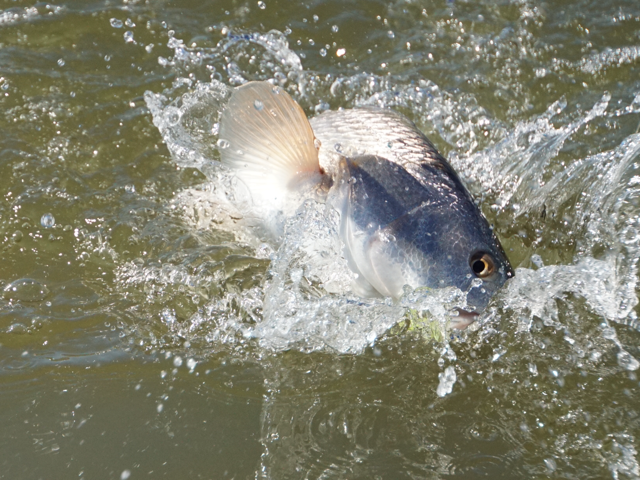
It’s a funny phenomenon.
Anglers spend so much time on so many aspects of their beloved pursuit of angling, but spend shockingly little time pursuing it. I think sometimes we forget to actually go fishing.
I get it. Most of us, me included, live a relatively or even extremely long way from the salty waters we dream to fish. Families, jobs, personal commitments and a cascade of other distractions and interests keep us from going fishing to the point our love of fishing becomes an almost virtual experience. We walk the aisles at tackle shops, travel to tackle and boat shows, and peruse the internet looking for fishing reports and photos of those who actually go fishing. It’s easy to lose touch with how much time we dedicate to all aspects of fishing…but fishing.
No one ever spent the waning moments on the proverbial death bed and thought “If I had only spent more time idly reading fishing reports on the internet,” or “Oh, to be back picking through the value bin of soft plastics at the tackle store.” If you added up all the hours, days and maybe even weeks spent dreaming and not doing, it would make our inner-angler start screaming.
Please know that I am writing this to myself as much as this website’s readership. I recently found myself with a day off, an invite to go fishing, and unbelievably, I weighed the fact that it was going to be a bit rainy and windy and travel had me behind on emails….please. Why would I ever pass up a day to possibly get a bite and to definitely improve my skills by trying? So I could avoid a little fog and rain and get caught up on emails? (Sincerest apologies to all of you who I owe a return email.)
Also, remember that just because you are a die-hard coastal angler does not mean you can’t throw a jerk worm to an eager largemouth bass at the local community pond or target a tenacious bluegill at a golf course water trap. Every day fishing makes you a better angler. This summer join me in going fishing as many times as possible. I find that the more I fish, the more connected I am to the value of the resource. The more I value the resource, the harder I work and volunteer to ensure its strength and health.
Take your child fishing. Take your family fishing. Take your parents fishing, or even just take yourself fishing. The most important thing is to make sure you actually go fishing.
